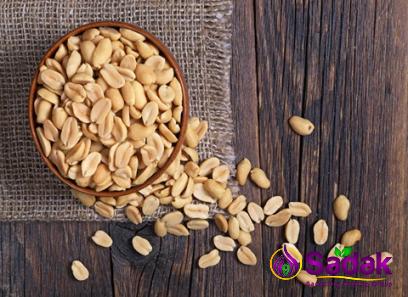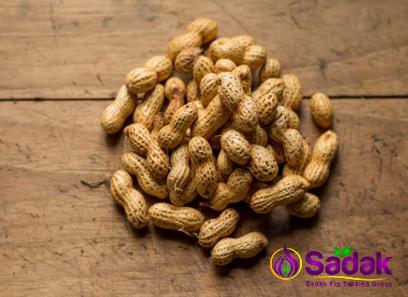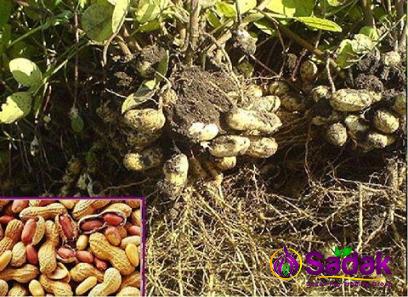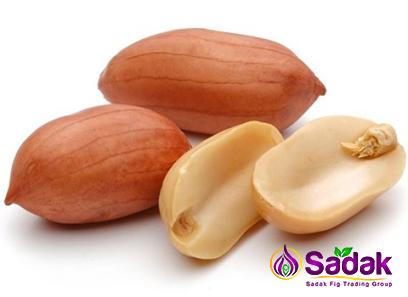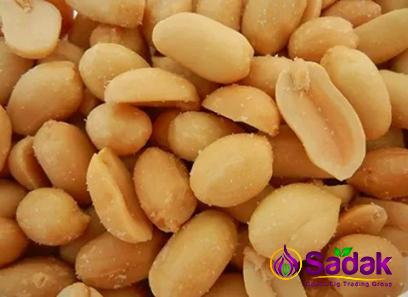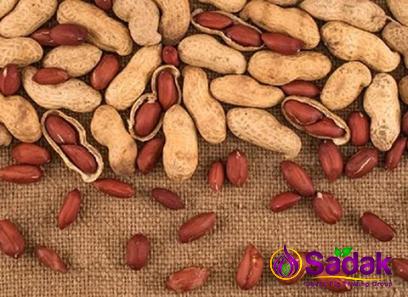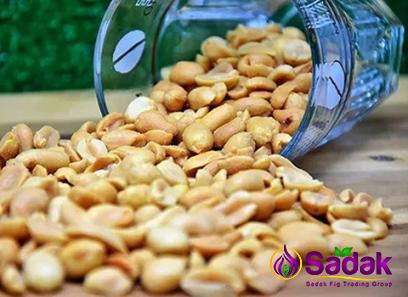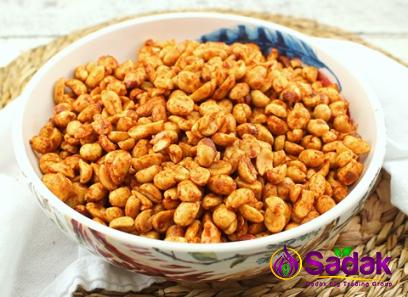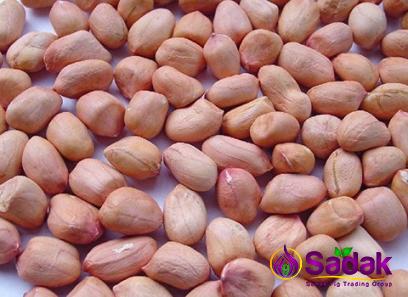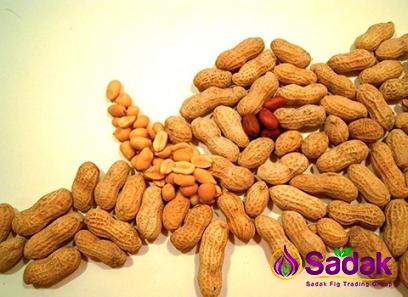Cashews are a popular and nutritious nut that is widely consumed around the world. Known for their rich and buttery flavor, cashews are used in a variety of culinary applications and are particularly prized for their versatility. The demand for cashews has been steadily increasing in recent years, with a particular interest in bulk purchases.
Bulk cashews are an ideal option for businesses such as retailers, restaurants, and manufacturers who require larger quantities of cashews for their operations. Purchasing cashews in bulk allows these businesses to benefit from cost savings, convenience, and the ability to control the quality of the product. Furthermore, bulk cashews provide an excellent opportunity for small businesses or entrepreneurs looking to enter the market and stock their shelves with a versatile and nutritious product.
When considering bulk cashew purchases, it is essential to understand the different varieties available in the market, their sourcing and production methods, quality factors, pricing considerations, and potential suppliers. Additionally, it is crucial to understand the packaging and storage requirements to ensure the longevity and freshness of the product.
One of the primary considerations when purchasing bulk cashews is the different varieties available. Cashews are harvested from the cashew tree, which is native to tropical regions such as Brazil, India, and Vietnam. The most common variety of cashews is the whole cashew nut, which has a crescent shape and a distinct kidney-like or “bean” appearance. However, there are also other forms available, such as broken cashews, cashew pieces, and cashew meal. Each variety has its purpose and can be used in different culinary applications.
Quality is also a critical consideration when purchasing bulk cashews. The quality of cashews can vary based on factors such as the size, color, texture, and taste. Ideally, cashews should be whole, uniform in size, have a light creamy color, and a firm texture. They should not have any rancid smell or taste. Ensuring high-quality cashews is essential to deliver a superior product to end consumers.
The sourcing and production methods of cashews are another important aspect to consider. Cashews are typically harvested by hand, as the nuts are contained within a fruit called the cashew apple. After harvesting, the nuts undergo a labor-intensive process to remove the toxic outer layer and the cashew shell, leaving behind the edible cashew kernel. It is important to verify that the cashews are sourced sustainably, with fair labor practices and adherence to quality control standards.
Pricing considerations play a significant role when purchasing bulk cashews. The price of cashews can vary depending on factors such as the quality, size, and quantity purchased. Prices are often lower when purchasing cashews in bulk, allowing businesses to benefit from cost savings. However, it is crucial to strike a balance between price and quality to ensure that the cashews meet the desired standards.
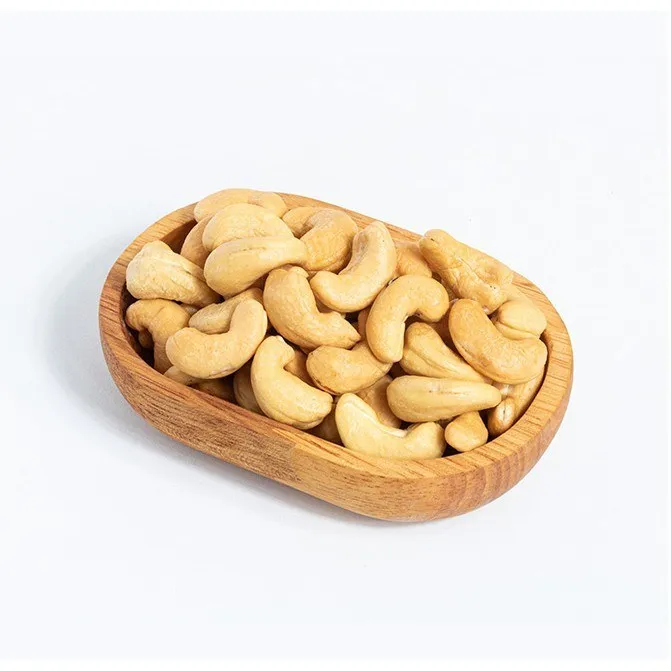
In terms of packaging and storage, bulk cashews need to be stored properly to maintain their freshness and quality. Cashews are highly perishable and can be affected by factors such as light, heat, and moisture. It is important to store cashews in airtight containers in a cool, dry place away from direct sunlight. Additionally, it is advisable to rotate stock regularly to ensure older cashews are used first.
When looking for potential suppliers of bulk cashews, it is essential to find reputable and reliable sources. Conducting thorough research, reading customer reviews, and requesting samples can help businesses evaluate the quality and reliability of potential suppliers. Establishing a good relationship with the supplier is crucial to ensure consistent quality, on-time delivery, and the ability to meet the specific needs of the business.
Bulk cashews offer businesses a range of benefits, including cost savings, convenience, and quality control. They provide an opportunity for businesses to stock up on this versatile and nutritious nut, catering to a variety of customer demands. With proper understanding of the different varieties available, quality factors, sourcing and production methods, pricing considerations, and storage requirements, businesses can make informed decisions when purchasing bulk cashews. By working with reputable suppliers and storing the cashews properly, businesses can ensure that they consistently deliver high-quality cashews to their customers.Title: Bulk Cashews: A Business Guide for Purchasing and Selling
Introduction:
Cashews are a highly sought-after nut known for their delicious flavor and nutritional value. For businesses such as retailers, restaurants, and manufacturers, purchasing cashews in bulk can offer numerous benefits. This article aims to provide a comprehensive guide to help businesses make informed decisions when buying and selling bulk cashews. The guide will cover various aspects, including types of cashews, sourcing and production methods, quality considerations, pricing factors, packaging and storage requirements, and potential suppliers.
I. Types of Cashews:
Cashews come in different forms, each suitable for various culinary applications. The most common variety is whole cashew nuts, which have a crescent shape and a distinct kidney-like appearance. Whole cashews are ideal for snacking, cooking, and confectionery. Broken cashews are smaller pieces that are often used in baking and cooking. Cashew pieces, which are even smaller, can be used as toppings or ingredients in dishes. Cashew meal refers to ground cashews, which are frequently used in baking or as a gluten-free alternative in recipes.
II. Sourcing and Production Methods:
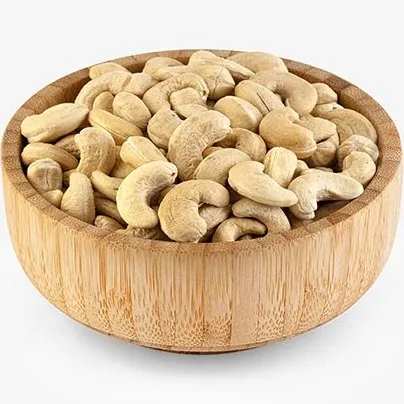
Cashews are harvested by hand from trees native to tropical regions such as Brazil, India, and Vietnam. After harvest, the cashews undergo a meticulous process to remove the toxic outer layer and the cashew shell, leaving behind the edible cashew kernel. It is essential for businesses to ensure that the cashews they purchase are sourced sustainably, with fair labor practices and adherence to quality control standards. Ethical sourcing not only contributes to a positive brand image but also ensures the highest quality cashews for customers.
III. Quality Considerations:
High-quality cashews should possess certain characteristics, including a light creamy color, uniform size, firm texture, and a fresh, nutty aroma. When purchasing bulk cashews, businesses should carefully inspect the quality of the product. The cashews should be free from any discoloration, rancid smell, or taste. Trusted suppliers often provide certifications verifying the quality and safety of their cashews, offering businesses peace of mind.
IV. Pricing Factors:
Pricing is an important consideration when purchasing bulk cashews. Prices can vary based on factors such as quality, size, and quantity purchased. Buying in bulk generally allows businesses to benefit from cost savings compared to purchasing retail-packaged cashews. However, it is crucial to strike a balance between price and quality to ensure the best value for money. Businesses should conduct a cost analysis and evaluate the quality of the cashews offered by different suppliers to make an informed decision.
V. Packaging and Storage Requirements:
Proper packaging and storage are crucial for maintaining the freshness and quality of bulk cashews. Cashews are highly perishable and can be affected by light, heat, and moisture. To ensure longevity, bulk cashews should be stored in airtight containers in a cool, dry place away from direct sunlight. It is also recommended to rotate the stock regularly, using older cashews before newer ones to prevent spoilage.
VI. Potential Suppliers:
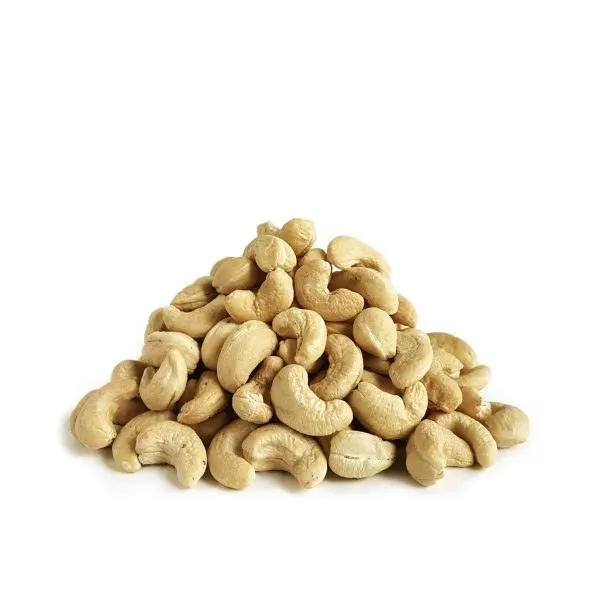
Finding dependable and reputable suppliers is vital for businesses looking to purchase bulk cashews. Extensive research should be conducted to identify suppliers who offer high-quality cashews, adhere to ethical sourcing practices, and have a track record of reliability. Reading customer reviews, requesting samples, and engaging in direct communication with potential suppliers can help assess their suitability. Establishing strong relationships with suppliers ensures consistent quality, on-time delivery, and the ability to meet specific business needs.
VII. Market Demand and Consumer Trends:
Understanding market demand and consumer trends plays a significant role in successfully selling bulk cashews. With an increasing focus on healthy snacking and plant-based diets, cashews have gained popularity as a versatile and nutritious ingredient. Businesses should conduct market research to identify target customers and assess their preferences. Additionally, staying abreast of consumer trends such as organic, sustainably sourced, and flavored cashews can provide a competitive advantage.
VIII. Leveraging Bulk Cashews in Culinary Businesses:
Bulk cashews can be a valuable asset for culinary businesses such as restaurants, bakeries, and food manufacturers. By purchasing in bulk, businesses can maintain more control over their inventory, reduce costs, and ensure a consistent supply of quality cashews. Moreover, bulk cashews offer the opportunity for menu innovation and creativity, allowing businesses to explore various recipe options and cater to different dietary preferences.
IX. Marketing and Packaging Considerations:
Proper marketing and packaging play a vital role in attracting customers and establishing a brand presence in the market. Eye-catching packaging design, informative labels, and highlighting the key qualities of the cashews, such as organic or sustainably sourced, can help differentiate a product from competitors. Additionally, utilizing digital platforms and social media to showcase the versatility and health benefits of cashews can expand the customer base and increase sales.
X. Potential Challenges and Mitigation:
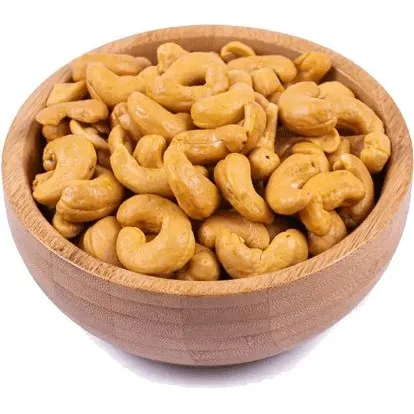
While purchasing bulk cashews has numerous advantages, businesses may encounter challenges along the way. These challenges can include finding reliable suppliers, managing inventory, ensuring quality control, and addressing market fluctuations. By conducting thorough research, developing strong relationships with suppliers, implementing effective inventory management systems, and staying adaptable to market changes, businesses can mitigate these challenges and ensure long-term success.
Conclusion:
Bulk cashews present an exciting opportunity for businesses to meet the growing demand for this healthy and versatile nut. By considering factors such as types of cashews, sourcing methods, quality requirements, pricing, packaging, and potential suppliers, businesses can make informed decisions when purchasing bulk cashews. Leveraging the benefits of bulk cashews can help culinary businesses expand their product offerings, cater to consumer preferences, and maximize profitability in an increasingly competitive marketplace.
